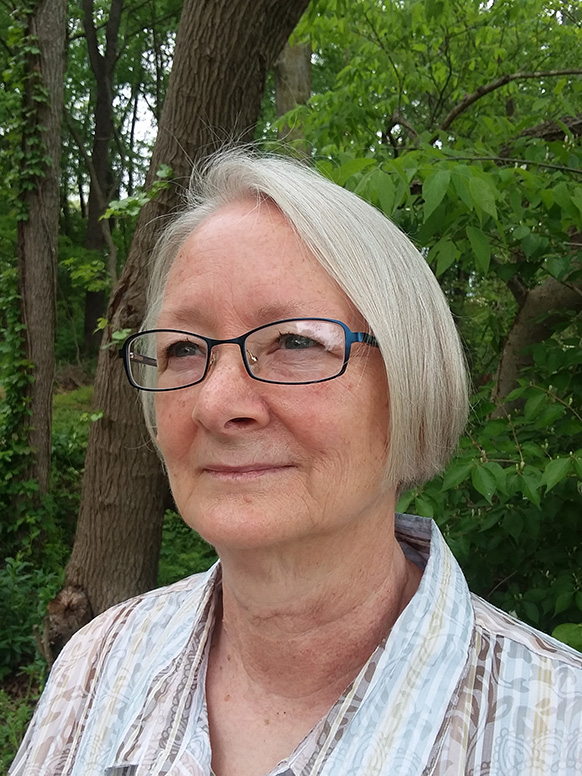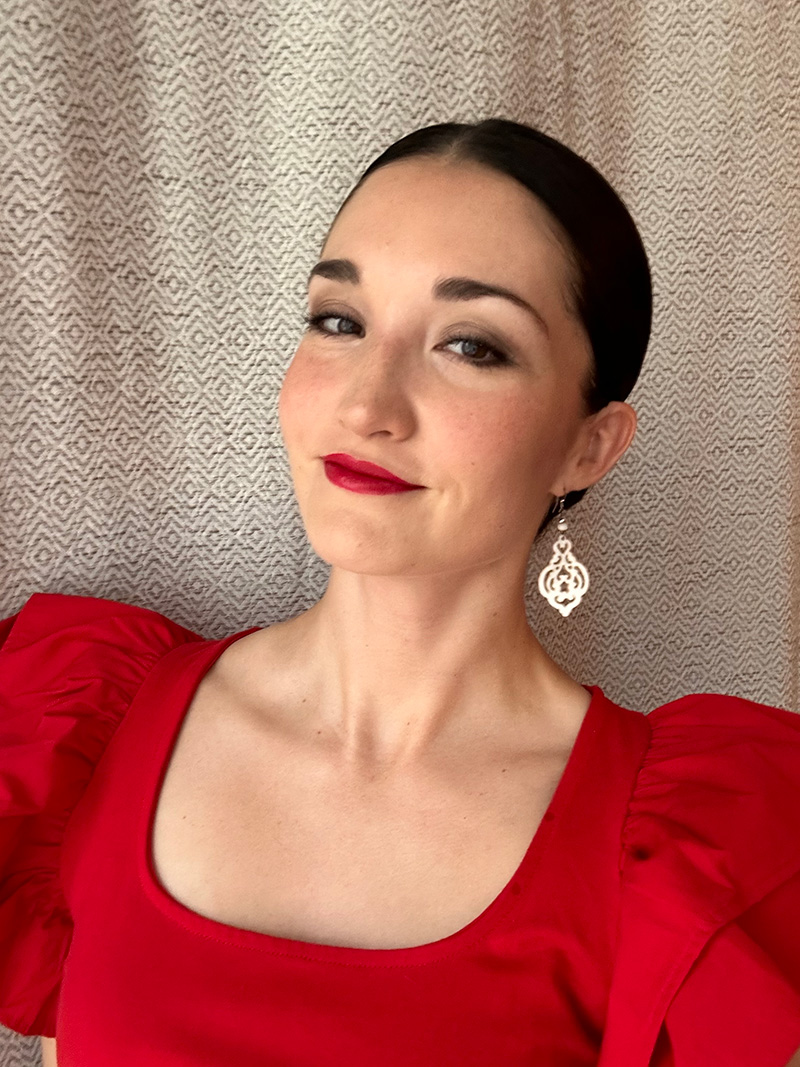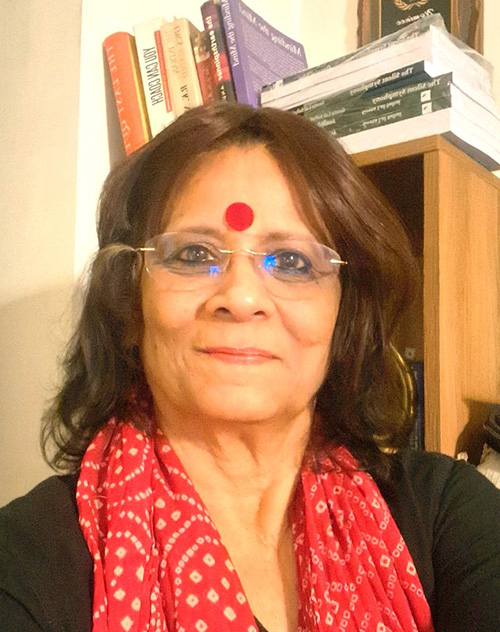Interview with Katherine Scott Crawford, Runner Up in the Q2 Creative Nonfiction Essay Contest with "Only Water"
Don't Underestimate the Power of Habit
Even Google Wants You to Have a Team
Recently I signed up for the Google Digital Marketing and E-Commerce Professional Certificate through Coursera. My library had scholarships available, and I’ve been wondering how much of the content would be useful to me, a freelance writer. I need to be visible online. I want people to find my work especially that I am now preparing to self-publish.
- To find out more about her writing, visit her site and blog, One Writer's Journey.
- Click here to find her newsletter.
Interview with Annalisa McMorrow - WOW! Q2 Creative Nonfiction Essay Runner Up
Everything's fine. Or not.
If my life was a song, the refrain would be “Everything’s fine.” I am that person. The one who tries to put a positive spin on every person and event. Part of it is wanting everything to be fine and the other part is not wanting to worry people with my problems. So I’ve been singing “Everything’s fine” for years. Even when things were not. It just seemed easier.
Interview with Janet Hise: Fall Flash Fiction 2024 Runner-up
Janet’s Bio:
Janet Hise is a Nebraska-based author with a writing degree
from Wayne State College. Her debut book was published by Arcadia Publishing,
and her work has been featured in Nebraska Life Magazine, Flash
Fiction Magazine, Splickety, Plains Song Review,
and more. A member of the Nebraska Writers Guild, she works in an academic
library and writes across multiple genres, from eerie tales to historical
fiction to young adult.
Janet spent her first 14 years on a family farm, where
stories of life in the countryside sparked her passion for writing. Her latest
work, a Christian thriller for adults, began as a NaNoWriMo project and evolved
into a full-length novel about near-death experiences. It is currently seeking
representation.
--------------------------interview with Sue Bradford Edwards-------------------------------
Interview with Joanne Lozar Glenn, 2nd Place Winner in the WOW! Q2 2025 CNF Essay Contest
A Day in the Life of Working from Home
I primarily work as a freelance writer, podcaster, and aspiring novelist. But if I’m to be honest, I spend most of my days being distracted by bright and shiny objects. Something tells me I’m not alone in this. Consider what an average day looks like for me.
Interview with Roxane Sloan - Runner Up in the Fall 2024 Flash Fiction Contest
Interview with Olivia Brochu: Q2 2025 Essay Contest Third Place Winner
Friday Speak Out!: So You Got Rejected Now What?
Rejection is something with which all writers are familiar. Writers can be rejected for many reasons from weak grammar to an illogical storyline. There are many causes of rejection, but what are some of the effects of rejection on the writer?
The some of the effects include the following –
Throwing the piece out and beginning afresh. This is a drastic response to rejection and is likely to be a result of hurt feelings and devastation. I don’t recommend this action, but if you’re completely tired of working and reworking a story or article, starting from scratch might be the way to go.
Getting advice from an editor or a reader and proceeding to rewrite from there. I do recommend this action. Sometimes a second set of eyes will move the story or article along and will take it to completion. My editor has saved me from looking like a fool many times, as well as spotting typos and misspellings.
Stopping writing entirely. NOT RECOMMENDED. Chalk the rejection up to an editor having a bad day.
Working harder on your own and perfecting the manuscript. Nuff said.
Shopping the piece (as is) around. This method stems from the idea that your piece will gain acceptance if it finds just the right editor. I recommend this action if you know that the manuscript is clean and interesting.
Putting the piece aside (in a drawer) and sleeping on it for a while. It’s amazing what time will do for one’s editing capabilities. You’ll be able to grasp the totality of the piece – the meaning, the syntax…everything about the story.
Of course, all these reactions have their pros and cons. What’s important is to keep at your art and to not give up. Rejection is part of the writing process, and writers should get used to being rejected. If writers can get over and learn from rejection, they can sell more of their work, which is an object of the business.
Back when writers sent their work out in paper form and received paper rejections, it was a fad to paper a wall of one’s home with rejection slips. Since most everything is electronic these days, this doesn’t occur, but, oh, those were the days! A wall papered with rejections was, in a way, a status symbol. It showed years (perhaps) of hard work and perseverance.
The most important thing to remember is to trust your instincts in your writing. This is easy to say and hard to do.
You will be rejected, and what I haven’t said is that maybe you should be rejected at that point in time. Maybe an editor is doing you a favor.
This brings me to a final point. Whether you sell a story or get rejected, don’t forget to thank the editor for her readership. This polite action will take you far.
They say that writing is rewriting. This is true. What’s also true is that writing for publication is rejection. That’s it in a nutshell.
Laura Yeager is a frequent contributor to Curetoday.com, a cancer website. She teaches writing at Kent State University at Stark and at Gotham Writers. Laura is happy and proud because her son, Thomas, has started writing and illustrating children’s books.
~~~~~~~~~~~~~~~~~~~~~~~~~~~~~~~~~~~~~~~~~~~~
Would you like to participate in Friday "Speak Out!"? Email your short posts (under 500 words) about women and writing to: marcia[at]wow-womenonwriting[dot]com for consideration. We look forward to hearing from you!
~~~~~~~~~~~~~~~~~~~~~~~~~~~~~~~~~~~~~~~~~~~~
Finding Out the Old Stories Don't Speak to You
.jpg) |
This has been a year of surprises. I've let go of a major writing gig and went both feet into my new podcast booking service (which is doing surprisingly well). And I managed this year, so far, to finish a strong draft of a story I'd been working on for years.
Interview with Geeta Lal Sahai: Fall 2024 Flash Fiction Contest Runner Up
Interview with Carol Ovenburg, WOW! Q2 2025 Creative Nonfiction Contest First Place Winner
Her life stories began spilling from her pen in 1999—tears dripping on her writing blurring words on the page. Many have been rewritten and become published essays—a few with WOW! Women on Writing, of which she is grateful. Her memoir continues to be a work-in-progress—she’s lost count of the multiple titles and the times she’s called it finished. But her current study of the origins of patriarchy, the myths and misogyny, and how being raised to put men first is the underlying element not yet developed in her memoir.
She lives in the Pacific Northwest and feels it’s wasted on her since she’s not a big nature person. She’s less about what’s out there; more about what’s in here. But she does venture out for walks and occasional hikes with her partner of twelve years.
Her published essays and digital art can be found on her website www.carolovenburg.com.
--interview by Marcia Peterson
WOW: Congratulations on winning first place in our Q2 2025 Creative Nonfiction essay competition! What inspired you to write your entry, “The Goddamn Ceiling?”
Carol: I had joined other writers in a Zoom three-hour planning workshop and decided to use my time to write. I didn’t know ahead of time that I would write this little story about cleaning the ceiling. It must have been hanging out in the back of my mind while, of late, reading about the origins of patriarchy. As I wrote it, I began to see ceiling and ladder as metaphors and the story took on a fuller meaning for me. It was an aha moment and I ran with it. It wasn’t until I was almost finished with the rewrite that I played around with the structure.
WOW: What is the most difficult part of your writing process?
Carol: First, that I’ve written something worth reading.
Second, that I can turn my writing into something worth reading—something I’m proud of. I’ll remember what my writing mentor said—it’s not what you write but how you write it. In the re-write, I’ll focus on craft. This is perhaps the most difficult part of writing well, but it’s also the most fun—to look at the many ways you can say something without choking it to death.
WOW: You’ve been on a memoir writing journey, and I’m sure you’ve learned a lot along the way. Is there a particular memoir you think everyone needs to read?
Carol: Yes. There are a few. I think any memoirist needs to read Jeannette Walls’s, The Glass Castle and Mary Karr’s The Liars’ Club: A Memoir. These two books were my first reads when I started writing memoir. I also love the more hybrid works—non-fiction mixed with memoir like Fire and Stone by Priscilla Long. Her book inspired how I want to re-write parts of my memoir. And I’d be remiss if I didn’t mention Chelsey Clammer’s Human Heartbeat Detected, a powerful little book of memoir moments in essays. I read the stories. I study the structure of these memoirs. Right now, I’m re-reading Steven King’s On Writing - A memoir of the Craft because there’s good stuff in there about writing well.
WOW: In your bio, you also mention that you’re an Argentine Tango social dancer, traveling to various cities around the country. What do you think people might not know or may want to know about Argentine tango dancing?
Carol: This is a huge question, one that requires a lot of pages to answer. I’ll try to make it short. Bear with me.
People come to tango for a lot of reasons and often quit because it’s more difficult a dance than they thought it would be. It’s one of those dances that can (and usually will) reveal our deepest fears—insecurities, social awkwardness/anxiety, addictions, inappropriate attractions, breakups, jealousy, etc. I’ve been through most of these discordant emotions while learning this medium of creative expression, and I persevere because I know there is great depth to this dance. I feel deep connection and joy and humility and fun allowing my body to be in the flow with my partner, with the music, with the floor, completely in the moment, present, and complete. I also relish the social life tango events bring. I adore my tango sisters. There’s so much to tango that you will rarely find a group of tangueras and tangueros talking together about anything other than tango.
One thing people might not know about Argentine tango is it’s an improvised dance. We do learn sequences and steps, but the dance is never the same from one song to the next. The music generally dictates the improvisation. The same way a mood or circumstance dictates the words and phrases we use to form sentences that take on different meanings. This, to me is Argentine tango—a vehicle for surprise.
WOW: Thanks so much for chatting with us today, Carol. Before you go, do you have any tips for our readers who may be thinking about entering writing contests?
Carol: I’d say enter, but before you enter, make sure your essay is as clean as possible. If you don’t have a good writing group who can edit your piece before sending it in, you might want to spring for a critique, if offered by the contest. I find the critiques extremely helpful.
And, read prior winners to learn what your contest is interested in publishing.
So enter if you can—it’s good medicine.
And don’t let rejections discourage you. They’re your friends.










.jpg)












